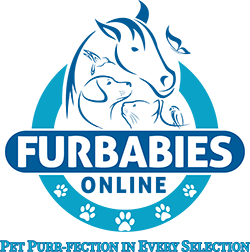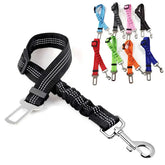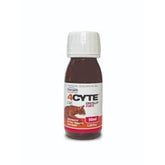50% OFF FLEA & TICK
NEW ARRIVALS
SHOP NOW & RECEIVE FREE 🎁
50% OFF FLEA & TICK
NEW ARRIVALS
SHOP NOW & RECEIVE FREE 🎁
50% OFF FLEA & TICK
NEW ARRIVALS
SHOP NOW & RECEIVE FREE 🎁
50% OFF FLEA & TICK
NEW ARRIVALS
SHOP NOW & RECEIVE FREE 🎁
50% OFF FLEA & TICK
NEW ARRIVALS
SHOP NOW & RECEIVE FREE 🎁
50% OFF FLEA & TICK
NEW ARRIVALS
SHOP NOW & RECEIVE FREE 🎁
50% OFF FLEA & TICK
NEW ARRIVALS
SHOP NOW & RECEIVE FREE 🎁
50% OFF FLEA & TICK
NEW ARRIVALS
SHOP NOW & RECEIVE FREE 🎁
50% OFF FLEA & TICK
NEW ARRIVALS
SHOP NOW & RECEIVE FREE 🎁
50% OFF FLEA & TICK
NEW ARRIVALS
SHOP NOW & RECEIVE FREE 🎁
Popular Products
PET CAR SEATBELT
Blue
Adjustable Dog Safety Seatbelt with 360° Rustproof Swivel Hook and Elastic Bungee Ensure your pet's safety and comfort on every car ride with our premium adjustable dog safety seatbelt. This seatbelt is thoughtfully designed to keep your dog secure and prevent distractions during driving,...
- $9.95
$19.95- $9.95
- Unit price
- / per
- Blue
- Black
- Gray
- Red
- PinkOrangeGreenLight blue
4Cyte Feline Epiitalis Forte Gel
4Cyte Feline Epiitalis Forte Gel: Joint Health and Mobility Support for Cats 4Cyte Feline Epiitalis Forte Gel is a specialized topical treatment designed to support joint health in cats. Formulated with Epiitalis, a unique plant-derived extract, it helps repair damaged cartilage, reduce inflammation, and...
- $49.90
$65.95- $49.90
- Unit price
- / per
PETKIT Eversweet Max Fountain Filter Unit Rect - 5pcs
PETKIT Eversweet Max Fountain Filter Unit The PETKIT Eversweet Max Fountain Filter Unit ensures the highest level of filtration for your pet's water fountain. Each pack includes five high-quality filters designed to effectively remove impurities, odors, and contaminants from the water, ensuring a clean...
- $39.95
$79.90- $39.95
- Unit price
- / per
Popular Products
PET CAR SEATBELT
Blue
Adjustable Dog Safety Seatbelt with 360° Rustproof Swivel Hook and Elastic Bungee Ensure your pet's safety and comfort on every car ride with our premium adjustable dog safety seatbelt. This seatbelt is thoughtfully designed to keep your dog secure and prevent distractions during driving,...
- $9.95
$19.95- $9.95
- Unit price
- / per
- Blue
- Black
- Gray
- Red
- PinkOrangeGreenLight blue
4Cyte Feline Epiitalis Forte Gel
4Cyte Feline Epiitalis Forte Gel: Joint Health and Mobility Support for Cats 4Cyte Feline Epiitalis Forte Gel is a specialized topical treatment designed to support joint health in cats. Formulated with Epiitalis, a unique plant-derived extract, it helps repair damaged cartilage, reduce inflammation, and...
- $49.90
$65.95- $49.90
- Unit price
- / per
PETKIT Eversweet Max Fountain Filter Unit Rect - 5pcs
PETKIT Eversweet Max Fountain Filter Unit The PETKIT Eversweet Max Fountain Filter Unit ensures the highest level of filtration for your pet's water fountain. Each pack includes five high-quality filters designed to effectively remove impurities, odors, and contaminants from the water, ensuring a clean...
- $39.95
$79.90- $39.95
- Unit price
- / per
00 items
More Dog’s
More Cat’s
- Choosing a selection results in a full page refresh.






